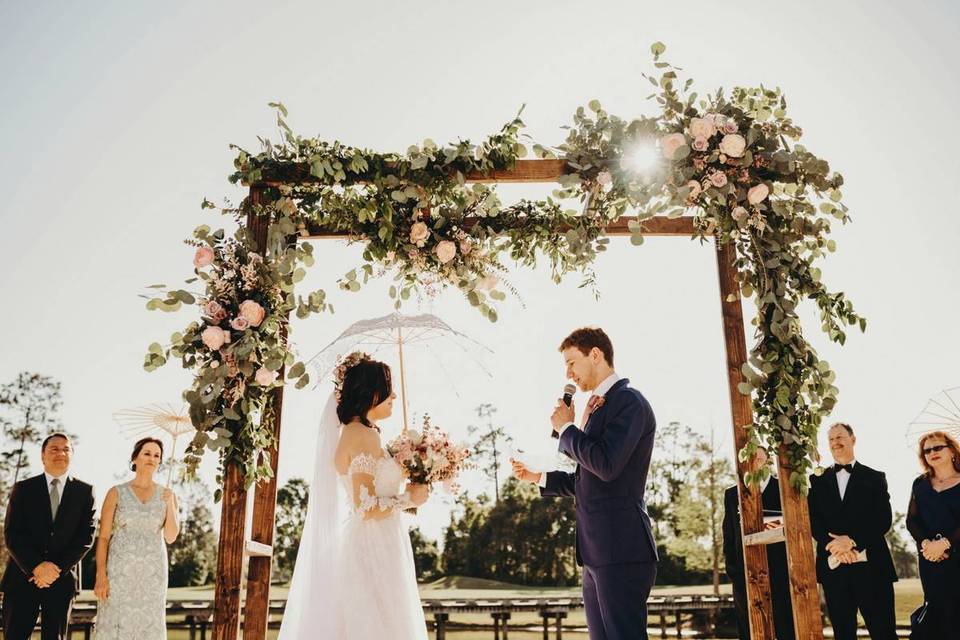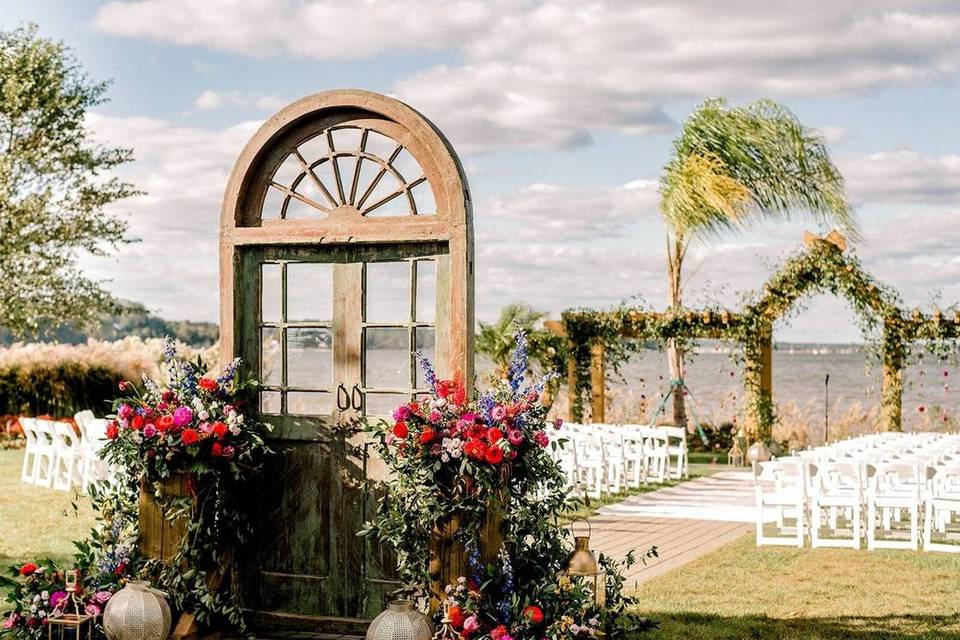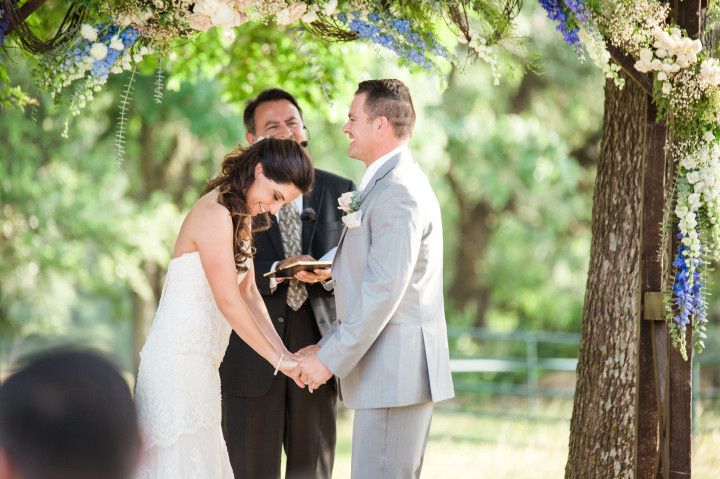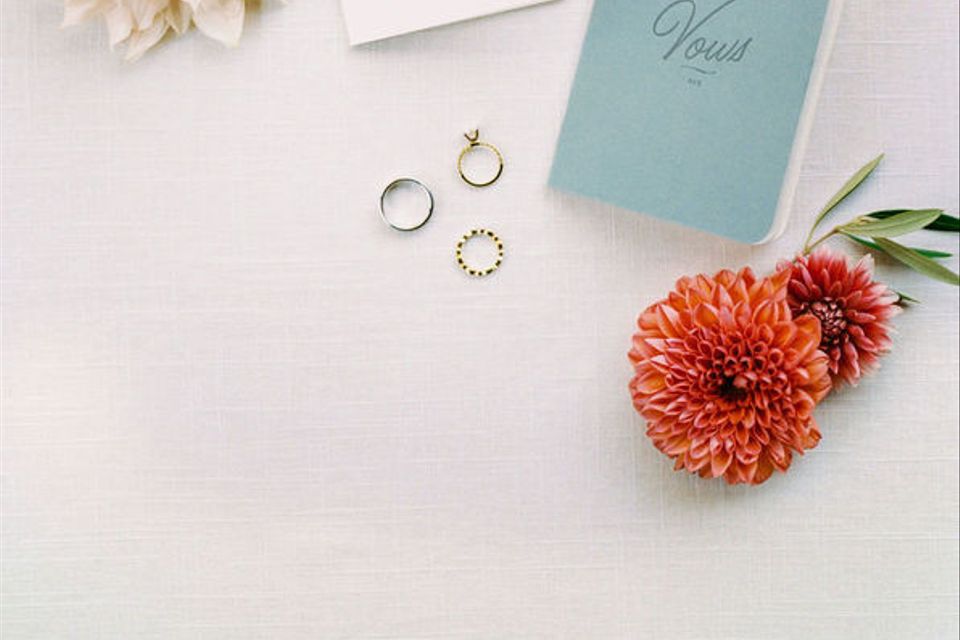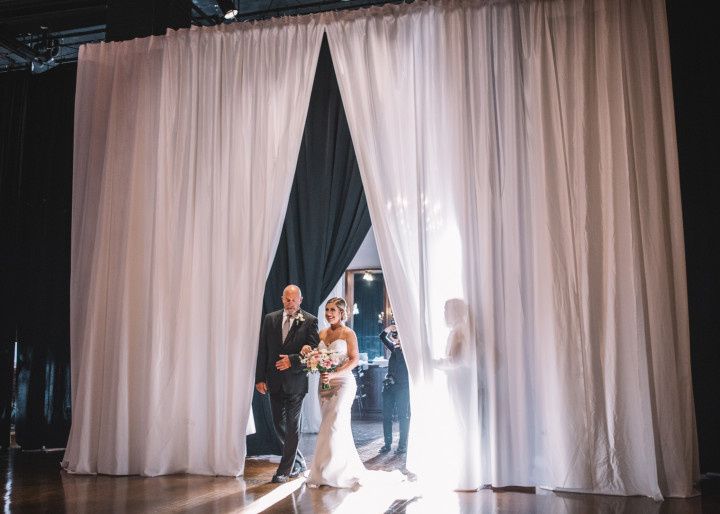Writing Your Own Wedding Vows? 4 Ways to Beat Writer’s Block
To get your creative juices flowing and your fingers typing, consider these tips on writing wedding vows from pros.
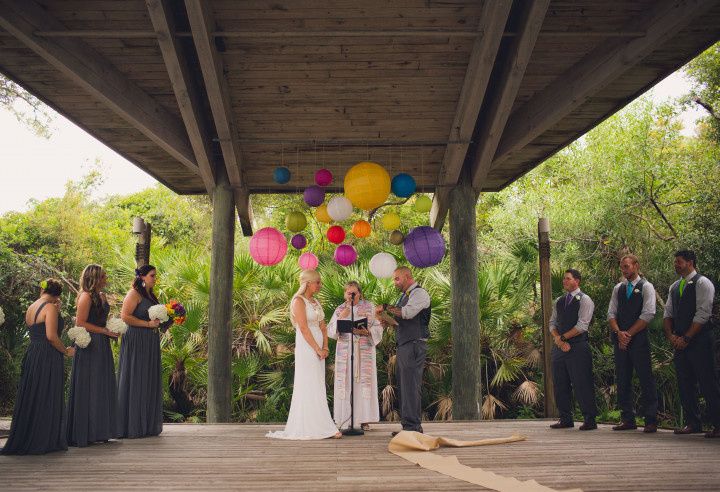

Photo: Ann Axon Photography
Once you’ve finally signed on the dotted line about your place settings, tasted the fish-or-steak selections, booked the honeymoon, and taken approximately one nap in the past four months, you might feel mighty accomplished in your wedding planning. Except one key, critical component that many couples delay until the very last second: writing wedding vows. Though seemingly a no-brainer practice, putting into words how you feel about your partner and what you promise to them can ignite your anxiety, big time. And put a major speed-bump in your to-do list, as you battle through writer’s block. In short? It’s a lot of pressure.
“A lot of couples fear writing wedding vows because they feel they cannot express their thoughts well enough or they may have to meet certain expectations. They wonder how long it should be or if their bride or groom will be happy with them,” explains officiant Kimberly Salt of Kimberlily Creek in North Tonawanda, New York.
To get your creative juices flowing and your fingers typing, consider these tips on writing wedding vows from pros:
Remember you don’t have to say every little thing you feel.
Finding the person you want to share your ups, downs, highs, lows, tummy aches, and job successes with for the rest of your life is a tall order. And all of those feelings that go into that relationship are undoubtedly beautiful and rare, but also overwhelming. Salt encourages couples to follow a simple rule by keeping their personal wedding vows short. “Sometimes couples have very long vows that are pages-long because they bring up so many moments and reminisce about their time together,” she shares. But instead of putting it all on paper to read in front of your guests, Salt says to consider having a condensed version you read out loud, a longer one you post on your wedding website, and if you want, another section that’s privately read during your honeymoon or after the wedding.
Photo: Gawne Designs Photography

